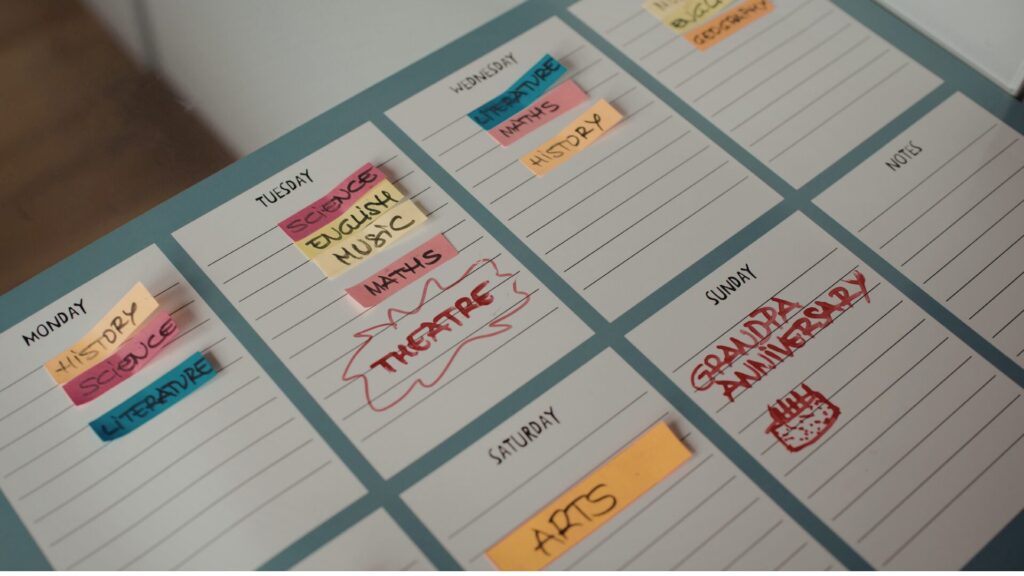Have you ever watched a TED Talk and felt that spark? Your mind widening, your heartbeat quickening, as a single idea changes the way you see the world? That moment of awareness, when curiosity stirs and you start to question, lies at the heart of what is critical thinking.
Critical thinking means questioning what you hear, connecting ideas, and forming reasoned conclusions instead of accepting information at face value.
It’s a skill every TED speaker models through curiosity, evidence, and empathy, and one that can transform how you learn and lead.
At our TED Summer School, you’ll explore how to think deeply, communicate clearly, and turn thoughtful questions into powerful insights. In this article, we’ll uncover what critical thinking means and how you can apply it the TED way.
What Is Critical Thinking?
Critical thinking is the ability to understand information deeply, question it thoughtfully, and make balanced, reasoned judgments. It’s how you move beyond memorising facts to analysing ideas, testing evidence, and deciding what truly makes sense.
The word critical comes from the Greek kritikos, meaning “to discern.” At its heart, critical thinking is about discernment, the capacity to separate reliable information from opinion, and clarity from confusion. It means using curiosity and logic to find meaning rather than simply accepting what you are told.
In education, it blends reasoning, creativity, and interpretation. You might apply it when assessing a scientific claim, debating a philosophical question, or exploring literary themes. Each act of reflection sharpens your ability to think independently and express ideas with confidence.
Beyond the classroom, critical thinking helps you navigate complex choices and shifting perspectives. It teaches you to recognise assumptions, evaluate viewpoints, and draw conclusions that stand on evidence and empathy. These habits underpin innovation, leadership, and lifelong learning.
At our Philosophy Summer School, you study thinkers from Socrates to Nietzsche, exploring ethics, logic, and the art of reasoning. Each session builds your ability to question ideas and communicate insights clearly, reflecting TED’s focus on thoughtful, structured thinking.
Together, these experiences show that critical thinking is not about having all the answers but about asking better questions.
How TED Speakers Demonstrate Critical Thinking
TED speakers model critical thinking every time they challenge assumptions or offer a new way of seeing the world. Their talks reveal how curiosity, logic, and empathy can turn complex ideas into clear, inspiring insights.
One powerful example comes from Chimamanda Ngozi Adichie’s “The Danger of a Single Story.” Through personal storytelling, she shows how stereotypes narrow our understanding and calls for broader, more questioning perspectives. Her talk embodies the essence of critical thought: examining how narratives shape what we believe.
Sir Ken Robinson takes a different approach in “Do Schools Kill Creativity?” Rather than accepting the education system as fixed, he invites audiences to rethink it. By blending humour with evidence, he reasons persuasively that true learning requires imagination and open dialogue, hallmarks of critical thinking.
In “The Best Stats You’ve Ever Seen,” Hans Rosling demonstrates that data is most powerful when it provokes reflection, not just persuasion. Using global statistics, he challenges widespread misconceptions and shows how analytical thinking can uncover truth beyond intuition.
Together, these talks prove that critical thinking thrives where curiosity meets courage. TED speakers balance emotion with evidence, imagination with analysis, and humility with insight, reminding us that growth begins when we dare to question.
How Students Can Develop Critical Thinking Skills
Critical thinking develops through consistent practice, not memorisation. It grows when you question ideas, examine evidence, and stay open to different viewpoints. Like TED speakers who refine their messages through curiosity and reflection, you strengthen this skill every time you think beyond the obvious.
Here’s how you can develop your own critical thinking skills in everyday learning and discussion.
1. Ask Meaningful Questions
Curiosity begins with a single question. When you explore a new idea, asking why and how helps you uncover meaning beyond surface facts.
TED speaker Ken Robinson once said, “Curiosity is the engine of achievement.” His point reminds us that progress starts with questioning what seems ordinary. The best thinkers don’t rush to answers; they pause long enough to ask better questions.
At Immerse’s London Summer School, you’ll practise this approach in small seminar groups. Guided by tutors, you’ll learn to challenge assumptions, connect ideas, and listen actively. Each question deepens your understanding rather than ending it.
As philosopher Socrates taught, wisdom begins with recognising what you do not yet know. This principle, known as the Socratic method, shapes how you think, discuss, and reason. In every conversation, one thoughtful question can open the door to many valuable insights.
2. Evaluate Evidence Before Deciding
Critical thinkers don’t take information at face value; they pause to test it. Evaluating evidence means questioning where information comes from, analysing what’s being claimed, and asking whether the proof truly supports the conclusion.
Think about the last time you scrolled through social media and saw a post that seemed convincing at first glance. Maybe it had bold headlines, emotional language, or impressive statistics.
But when you looked closer, you realised the source was unclear or the data didn’t match the claim. That moment, when curiosity replaces assumption, is the beginning of critical thinking.
In “The Best Stats You’ve Ever Seen,” Hans Rosling captured that same idea on a global scale. By turning real-world data into vivid visuals, he revealed how evidence can dismantle stereotypes and challenge the stories we tell ourselves about progress and inequality.
Evaluating evidence trains you to separate feeling from fact and judgment from impulse. It’s how you learn to see beyond headlines, test ideas honestly, and build opinions rooted in understanding rather than reaction.
3. Reflect on Different Perspectives
Think about the last time you walked past a homeless person and immediately thought it was their fault for not working hard enough.
It’s a common reaction, but it often comes from seeing only the surface of someone’s story.
When you pause to imagine the challenges that might have led there, like job loss, illness, family struggles, you begin to realise how limited your first impression was.
Reflecting on different perspectives means taking that pause before making a judgment. It’s asking yourself, What don’t I know yet? Or what might I see differently if I understood their experience?
By learning to question your own assumptions, you train your mind to look deeper and think more fairly. Critical thinking grows from empathy as much as logic, reminding us that understanding begins when we stop assuming and start listening.
4. Practise Open Discussion
Some of the best ideas are born in conversation. When you share your thoughts out loud, you invite others to challenge, expand, and refine them, and that’s where real learning happens.
Open discussion is not about winning an argument; it’s about exploring possibilities together. Listening carefully, responding thoughtfully, and asking follow-up questions all help you see the strengths and gaps in your reasoning.
Think of a classroom debate, a group project, or even a late-night talk with friends. The moment someone offers a perspective you hadn’t considered, your thinking shifts and deepens. That’s critical thinking in action, learning through exchange, not isolation.
Whether in person or online, practising open discussion helps you build confidence in expressing your ideas clearly and respectfully. It reminds you that good communication isn’t about speaking the loudest, but about listening with intent and responding with insight.
Join the Immerse Education 2025 Essay Competition
Follow the instructions to write and submit your best essay for a chance to be awarded a 100% scholarship.

Why Critical Thinking Matters Beyond the Classroom
Critical thinking doesn’t end when lessons do; it shapes how you navigate everyday life. From choosing what news to trust to making career decisions, the ability to think clearly and fairly affects nearly everything you do.
Here’s how strong critical thinking skills prepare you for the future:
- University readiness: Higher education demands independent thought. Critical thinkers analyse research, form reasoned arguments, and approach study with intellectual curiosity.
- Better decision-making: You learn to assess evidence, recognise bias, and make choices guided by reason rather than emotion.
- Creative problem-solving: By questioning assumptions, you discover innovative approaches to complex challenges.
- Leadership growth: The best leaders don’t just direct; they think critically about people, priorities, and outcomes. This skill helps you lead with fairness and foresight.
- Workplace adaptability: As industries change, critical thinking enables you to learn quickly, solve problems, and adapt to new technologies and ideas.
- Ethical awareness: Reflecting on the consequences of your actions helps you make responsible, value-driven decisions.
Critical thinking also mirrors the TED community’s global spirit, a network of thinkers and speakers who question norms, test ideas, and turn curiosity into innovation. Their success shows how powerful open-minded reasoning can be in shaping new solutions for the world.
Try It Yourself: A Mini Critical Thinking Challenge
Let’s see how you can put your critical thinking skills into practice. Imagine this scenario:
You read an online article claiming that a new study proves that using phones at night lowers intelligence. The headline sounds dramatic, and everyone in the comments is sharing it as fact. What do you do next?
Pause and think through these steps:
- Question the claim. Who published it, and what’s their motive?
- Check the evidence. Does the article link to the original study or just summarise it?
- Compare perspectives. What do other credible sources say?
- Draw your conclusion. Based on the facts, decide whether the claim is accurate or exaggerated.
At our TED Summer School, you’d take on similar real-world challenges through collaborative workshops and discussions. These exercises help you practise the same habits TED speakers use: questioning, analysing, and building ideas that inspire meaningful change.
Critical thinking isn’t just about finding truth; it’s about developing the confidence to seek it. Every time you question, reflect, and reason, you become not only a better thinker but also a stronger communicator and leader.
Becoming a Reflective Thinker with TED × Immerse
Understanding what is critical thinking is the first step to mastering it. It’s more than an academic skill; it’s a lifelong habit of curiosity, reasoning, and reflection that helps you question confidently and communicate ideas that make an impact.
If you want to learn how to think like a TED speaker and apply these skills in real discussions, take a look at our TED Summer School. Through interactive sessions and collaborative projects, you’ll explore how great thinkers question, analyse, and present ideas that inspire change.
True critical thinkers know that learning doesn’t stop once a question is answered. It begins again each time you dare to ask a new one.





















